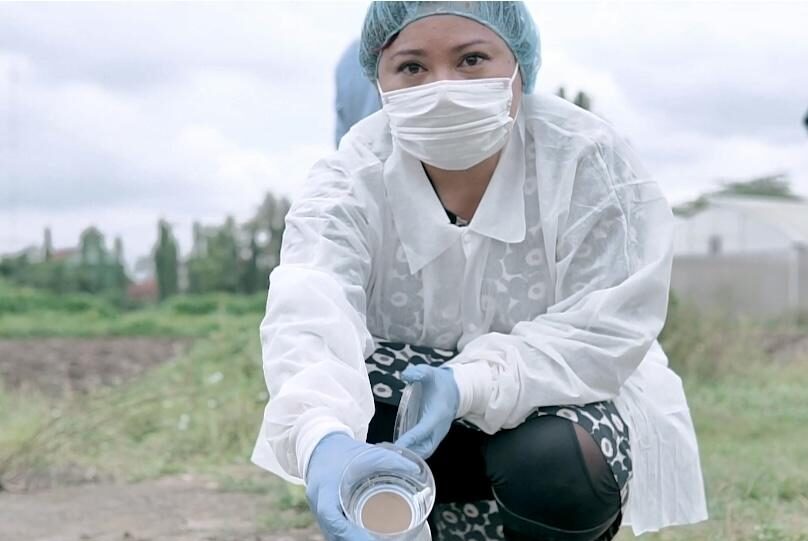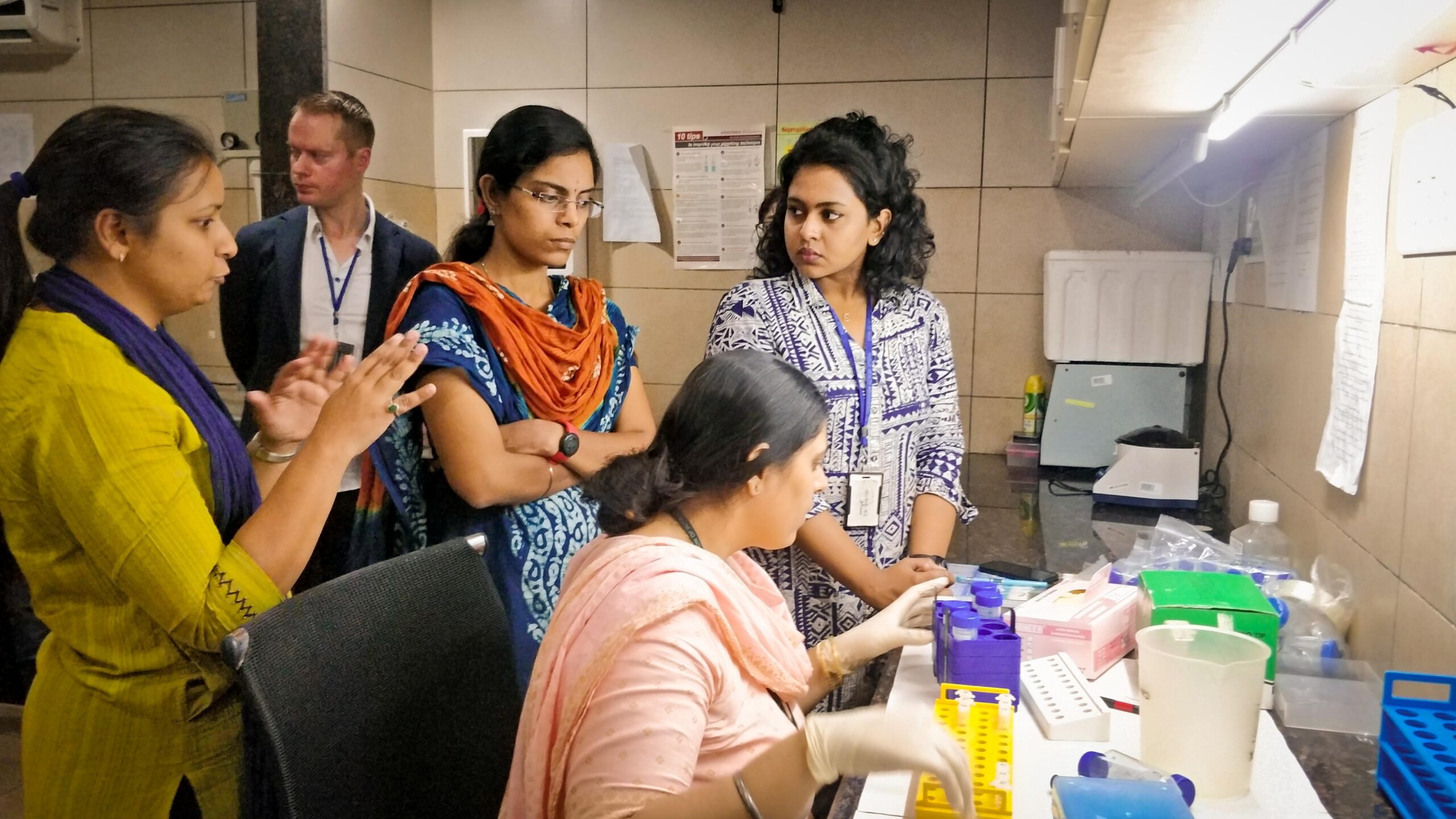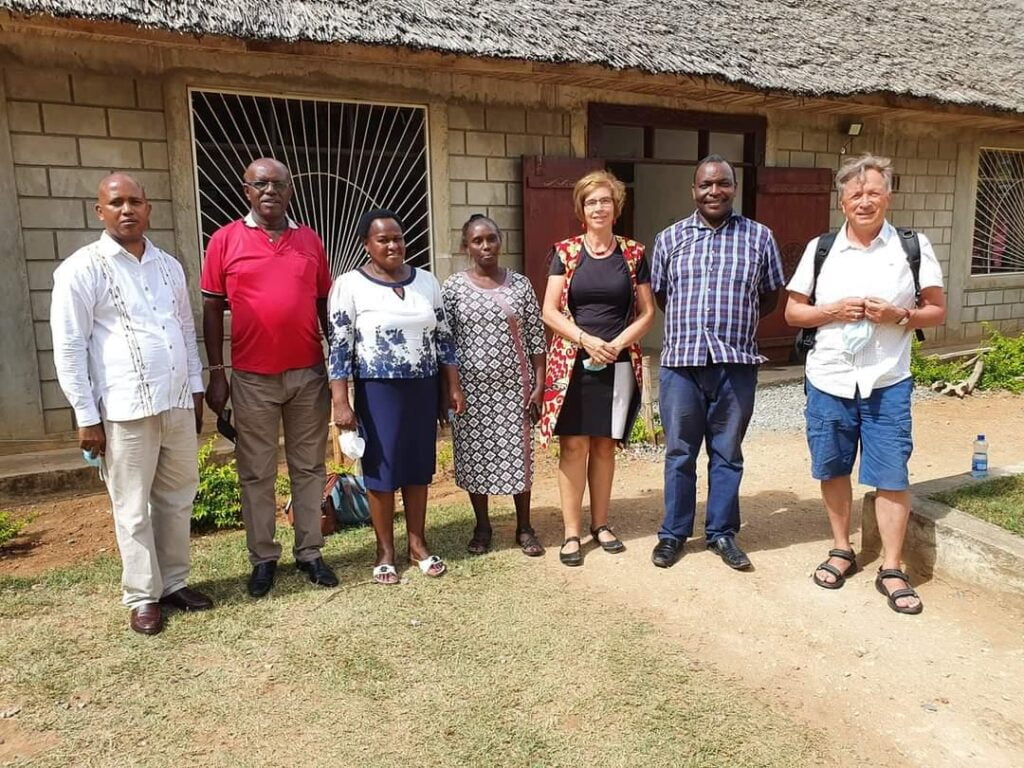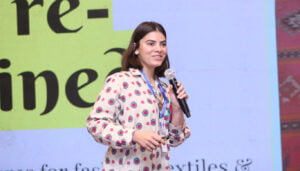Finnish know-how offers solutions to global health problems

Finnish heath technology companies offer solutions to major health threats in Africa and Asia and globally, and one Finnish company is exporting know-how in elderly care in Kenya. UN member states have agreed on the Sustainable Development Goals by 2030. The goal #3 is to ensure healthy life and well-being for all ages. Companies that have received Finnpartnership’s business partnership support talk about their projects and how to make profitable business while helping to achieve the SDG goals.
Resistomap
The spread of superbacteria is a global threat
The spread of antibiotic-resistant bacteria is a global health threat. Antibiotic-resistant bacteria is most commonly detected in countries where pollution levels are high, particularly due to man-made pollutants, and where antibiotics are widely used. The risk of antibiotic-resistant bacteria developing is particularly high in developing countries where antibiotic use has not been restricted in the same way as it has in Western countries. The situation needs to be monitored closely. More data and expertise on superbacteria and how to manage the risk they pose is needed, particularly in developing countries.
Striving for global monitoring of antibiotic-resistant bacteria
Resistomap Oy offers research institutes, health care organisations and companies in the food and agricultural industries environmental monitoring services that can detect antibiotic-resistant bacteria. The long-term goal of the Finnpartnership-supported project is to develop environmental monitoring of antibiotic-resistant bacteria on a global scale, explains Resistomap’s CEO Windi Muziasari.
Finnpartnership launched the project by funding a study conducted by Resistomap in collaboration with their partner in Indonesia, Universitas Gadjah Mada Biotechnology Centre (UGM), which provided laboratory services. The pilot project was launched in 2020 in cooperation with three Indonesian hospitals. Resistomap filters DNA samples from the hospital waste water for bacterial genes associated with antibiotic resistance.
Sending the environmental samples themselves to Finland would require a lengthy authorisation procedure, which is why only the DNA extracted from the samples is sent. Currently, the DNA is extracted by a partner organisation, but Resistomap intends to establish their own central laboratory in Indonesia during the next stage of the project. In addition to samples from Indonesia, the laboratory will also be able to receive environmental samples from other countries in Asia. With the establishment of the central laboratory, Resistomap also plans to set up a subsidiary in Indonesia. In the even-longer term, Resistomap’s goal is to work with the UN to build a global digital database of antibiotic resistance in the environment.
The early stages of the project will train partners and support female researchers in their scientific careers
“We were introduced to many potential partners during the first two stages of the project and this year, in the third stage, we are going to be evaluating partners for our central laboratory,” Muziasari explains.
Awareness of superbacteria will be spread through the partner employees trained as part of the project, allowing the spread of the bacteria to be curtailed in time. The project also produces new data on antibiotic-resistant bacteria and their identification. The partners trained by Resistomap will also be able to continue their work to identify antibiotic-resistant bacteria in fertilisers and the agricultural sector in Indonesia with funding procured through other channels.
“It’s great that Finnpartnership wants to support women. That’s why, while we are in the pilot stage and our operations are still small-scale, we have been hiring exclusively women into the project. It isn’t easy for women to progress in high-skilled industries in Indonesia, and we want to give them encouragement and opportunities.”
Aqsens Health
Oral cancer is a major public health problem in India
Roughly 52,000 people die of oral cancer each year in India. Approximately one in three cancer patients in India suffer from oral cancer. It is the most common type of cancer among men. The primary reason oral cancer is so common in India is the use of chewing tobacco. This type of tobacco is produced from naturally occurring, carcinogenic betel leaves and is most commonly used by many of the poorest people in the country.
Early diagnosis and monitoring of oral cancers is important because they progress quickly and become difficult to treat once they advance past a certain stage. The earlier the cancer is detected, the better the patient’s chances of recovery and the cheaper the treatment. Unfortunately, cancer is often detected too late.
A cheap and easy oral cancer screening method
Aqsens Health Oy has patented a cheap and easy oral cancer screening method developed in collaboration with the University of Turku. A rapid test developed by the company and based on this method can be used to screen saliva for early-stage oral cancer. The method developed by the company can be utilised by private and public health care providers, as well as the voluntary sector.
Using traditional methods, detecting oral cancer requires a doctor to surgically remove a tissue sample. This procedure is expensive, and most people in India simply cannot afford it. The company’s device, which tests saliva samples and can be brought to wherever the difficult-to-transport samples are taken, can reduce the cost of testing significantly.
The right partners can open doors to new markets
Finding the right partners has been a prerequisite for the success of the company’s efforts. The internationally recognised Public Health Foundation of India (PHFI) has taken on the role of performing validation testing for the product in India.
Timo Teimonen, the CEO of Aqsens, explains that the company is now also working with a foundation established by India’s largest biotechnology company, Biocon. Through Biocon, the company gained a communication channel to the Indian Department of Biotechnology. “India is a country where working with and through the state and public organisations is extremely important.”
Scalable health technology produces profitable business activities and far-reaching development impacts
Biocon Foundation already performs over 100,000 screenings each year through their charity work alone. Aqsens also intends to establish cooperative relationships with other foundations, large funds and development banks in the health care sector in the future. “By working with organisations like these, we can scale up our operations and have a real impact,” Teimonen explains. “Once our operations really get going, the method developed by Aqsens will be used to perform millions of cancer screenings every year. Oral cancer is also a big issue in many other Asian countries with large populations, which means there is plenty of demand for the product.”
The method was originally developed to screen for oral cancer, but the device has also shown to be extremely useful for monitoring the spread of infectious diseases. In Ghana, the same device and technology are being developed further to provide a malaria diagnosis from a saliva sample. The method is made particularly interesting by the fact that the mobile phone that is used to read the test results also records the time and place of each test. This information is particularly valuable when it comes to monitoring epidemics, as an up-to-date situational picture allows the epidemic to be managed effectively, Teimonen explains.
The Business Partnership Support granted to Aqsens Health’s project by Finnpartnership has also played an important role in helping the company establish a subsidiary in Bangalore. Without a subsidiary, the company would not have been able to gain the permits required by the Indian Department of Biotechnology for medical validation testing. Finnpartnership’s support has also allowed for social impacts and their evaluation to remain central to the project, which is very important to the company, its partners and its customers.

Amanihoiva
Kenya has significant need for home care for elderly people and training for carers
Increased wealth, improving living standards and a healthier population are causing people to live longer than before, which is affecting countries’ demographics, including countries with lower average incomes like Kenya. There is an increasing number of elderly people who need and can afford to pay for home care, but the health services they need are still scarcely available. There is very little available training for elder care workers and professional help for people caring for elderly family members at home in Kenya.
There are still many areas of Kenyan elder care training that are in need of development. Training for carers does not include elder care courses, and public practical nurse or geriatric nurse training focused on caring for elderly people is not available at all in the country. The need to train personnel to assist nurses or provide home care has not been recognised or standardised in Kenya’s public education system.
Amani Care – home care and home nursing for elderly people with the means to afford it in Kenya
Amanihoiva Kotihoito Oy has established a subsidiary named Amani Hoiva Kenya Ltd. that offers home care for the elderly with the purpose of improving elder care in Kenya. The company will be offering home care and home nursing services for elderly people who have the means to afford it under the Amani Care brand. The goal of the company is to offer customers care that meets Finnish and European standards.
Initially, business activities will be launched in the Kenyan capital of Nairobi, but digitalisation will also allow them to be expanded to regions along the coast, the central highlands and the Maasai Mara area, where they will also serve elderly European people who spend part of the year in Kenya. The ability for doctors to provide remote guidance for carers and nurses on location will make services outside Nairobi more cost-effective.
Finnish elder care practices in Kenya
Amanihoiva’s CEO, Faisa Egge, explains that the training of the company’s first 50 employees will begin in early 2022. Some of the teachers will come from education institutions in Kokkola, Finland that train personnel for the social services and health care sectors. The Finnish teachers will bring with them many practices that are crucial in elder care and are still missing in Kenyan carer training. According to Egge, considerations like the patient’s right of self-determination are still foreign to the Kenyan care industry.
There are also plans to use the applicable parts of this training as a scalable pilot for public and private education institutions in Kenya that offer nursing training and, by doing so, to take part in developing elder care competence on a national scale. The concept of integrating Finnish elder care practices and training with official, authorised nursing training has already been the subject of preliminary conversations at the ministerial level.
Profitable business makes basic health care available to even the poorest
Health care inequality is a significant problem in Kenya. The shortcomings of the Kenyan public health care system are felt particularly by those living in extreme poverty who cannot afford to pay for their care.
In addition to promoting the health and wellbeing of elderly people, the project also has the mission of reducing health care inequality. “We also need to help the people who are most disadvantaged. Everyone has the right to live a healthy life. It can’t be a question of how much money you have,” Egge says. Once business operations are fully up and running, the company plans to offer basic health care services for free in vulnerable communities.

Finnpartnership’s support has been important
“Finnpartnership requires us to report on the development impacts of our operations, which means we are consistently analysing them. Considering the impact we have is always important, but it is doubly so in developing countries because we don’t want to create any additional problems,” explains Resistomap’s CEO Windi Muziasari. “Finnpartnership has shown us how to take sustainable development goals into consideration and analyse our development impacts. This has been invaluable for us as we apply to other organisations for more project funding. Finnpartnership’s financial support has allowed us to travel to Indonesia, without which meeting with local partners would have been difficult. Projects with extremely long-term goals like this one come with such great financial risks that we simply wouldn’t have been able to undertake it without Finnpartnership’s support.”
The Business Partnership Support granted to Aqsens Health’s project by Finnpartnership has also played an important role in helping the company establish a subsidiary in Bangalore. Without a subsidiary, the company would not have been able to gain the permits required by the Indian Department of Biotechnology for medical validation testing. Finnpartnership’s support has also allowed for social impacts and their evaluation to remain central to the project, which is very important to the company, its partners and its customers.
The CEO of Amanihoiva explains that Finnpartnership’s support has ensured the company’s ability to plan thoroughly, secure sufficient resources for the required preliminary assessments and find the right business partners.
Share on social media


